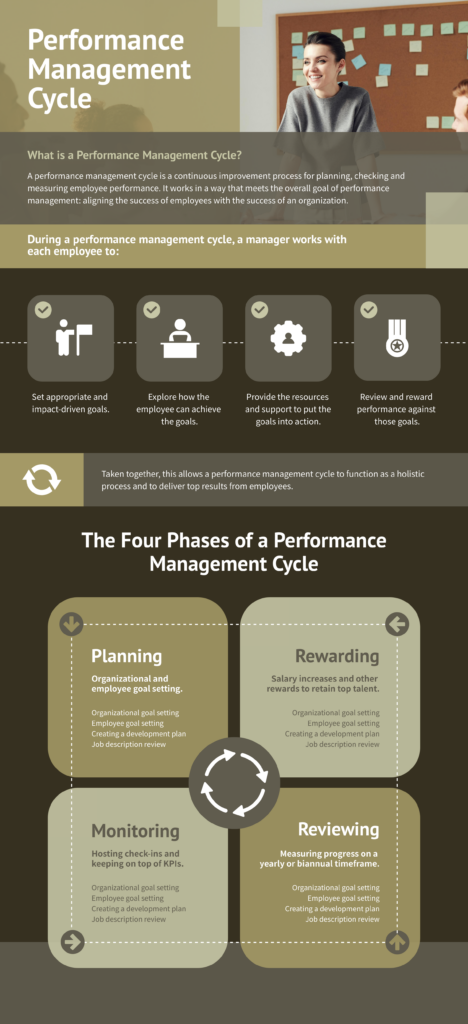Top 25 Appraisal Questions and Answers: Everything You Need to Know

With appraisal season beginning in 2024, it is important to get ready for upcoming evaluations. Therefore, preparing for it with a study of appropriate appraisal questions and answers might be valuable in how your performance review questions and answers turn out. This guide offers the best 25 appraisal interview questions and their detailed answers so that you are confident and prepared for your performance appraisal. Moreover, we will tackle a few commonly raised inquiries regarding the appraisal procedure to enhance your preparedness.
25 Most Common Appraisal Questions and Answers

1. What Achievements are You Most Proud of This Year?
This is a common question during appraisal season, so be sure you have your response ready.
Answer: I would say my leadership of Project XX is something I am most proud of. It hit the outlined goal; in fact, it exceeded the goal by delivering a 30% improvement in operation effectiveness. When we faced the sudden departure of an important team member, I stepped up to handle more duties and make sure the project kept going smoothly.
2. How Have You Contributed to Team Goals?
Answer: This year, I have focused on improving our team’s collaborative processes. Additionally, by using Agile methodologies, we have seen a 25% increase in project turnaround times. The ongoing guidance of two junior team members has fast-tracked their professional growth and bolstered our team’s knowledge.
3. How do You Handle Stress and Pressure?
Answer: What has helped manage stress this season is sorting tasks by importance and making sure urgent time limits are kept while upholding quality standards. Firstly, organizing tasks by priority reduces feelings of overwhelm and creates a clear workflow, allowing you to focus on what’s crucial. Secondly, implementing strict deadlines ensures efficiency while maintaining quality standards. This balance prevents procrastination and avoids the need for rework, enhancing both satisfaction and productivity. Together, these strategies streamline the workload and reduce stress, particularly in high-pressure environments.
My ability to bounce back from stress and handle pressure has improved because I use stress-reduction methods such as mindfulness and short breaks. Firstly, mindfulness involves being present and engaged, helping you respond to stress calmly and objectively, thus enhancing emotional and cognitive control. Secondly, short breaks provide essential downtime, preventing burnout and boosting performance by allowing the brain to rest and recharge. Additionally, openly discussing workload expectations with your manager ensures tasks are manageable, complementing these stress management strategies. Together, these approaches foster resilience and maintain productivity.
4. Can You Discuss a Time You Faced a Challenge at Work?
Answer: One big challenge was the sudden change to remote work for health reasons. At first, this shift appeared very difficult; nevertheless, by promptly adjusting our communication instruments and work procedures, I could keep up with project schedules and quality standards—even enhancing them in certain domains. Additionally, I maintained team spirit by organizing virtual team-building activities. This showed that I am adaptable and creative when dealing with difficulties.
5. How do You Prioritize Your Workload?
Talking about load prioritization is a normal topic while discussing appraisal answers.
Answer: The way I handle it involves looking at all tasks carefully and then putting them into groups according to how important or urgent they are. Also, using project management software helps me make sure that every deadline is followed and shared with the team clearly. Also, periodic meetings with my supervisor provide flexibility to adapt as priorities may have changed. This guarantees that our attention is in line with the latest business goals.
ALSO READ: Top 5 Appraisal Questions and Answers
6. How do You Stay Updated With Industry Trends?
Answer: I dedicate time each week to reading industry publications and participating in relevant webinars and conferences. Furthermore, engaging with my network of professionals on platforms like LinkedIn allows me to exchange insights and experiences. I have found that such a continuous learning approach not only enriches my knowledge base but also directly influences the innovative strategies I apply to my work.
7. What Skills Have You Acquired or Improved This Year?
Answer: I enhanced my analytical abilities through advanced courses in data analysis. Additionally, I’ve improved my public speaking skills, which has significantly boosted my confidence in delivering presentations. These newly honed skills have not only increased my contribution to our team but also broadened my professional capabilities.
8. How do You Measure Your Success?
Answer: For me, success is multifaceted; it encompasses achieving set objectives, the positive impact of my work on the team, and recognition from peers and superiors. I also consider personal growth and learning as key indicators of success, reflecting a balanced view that aligns professional achievements with personal development.
9. How do You Handle Feedback?
Handling feedback constructively is vital, and it should be reflected in your performance review questions and answers.
Answer: I actively try to identify areas for improvement. Moreover, I view feedback as a learning opportunity. This enables me to approach my work with an open mind and a commitment to continuous improvement. I also discuss feedback with my manager which helps me develop clear strategies for addressing any concerns, illustrating a proactive and positive approach to personal and professional growth.
10. What are Your Career Aspirations?
Answer: My aspiration is to evolve into a leadership role within our organization, where I can contribute more significantly to strategic planning and execution. Additionally, I plan to enhance my leadership skills and industry knowledge to prepare for these future responsibilities, demonstrating my commitment to my career trajectory and the organization’s success.
ALSO READ: 360 Degree Appraisal: Definition & Feedback

11. How Have You Demonstrated Leadership Skills?
Answer: I promoted an atmosphere of open communication and teamwork, ensuring every team member felt important and inspired. Moreover, I am a firm advocate for team growth and for that, I have spent the year mentoring young colleagues and guiding them in advancing their professional paths.
12. Describe a Project Where You Took Initiative.
Answer: I recognized a missing efficiency in our workflow method. I led a project to automate recurring tasks that resulted in reducing project completion time by 20%. This plan not only increased the productivity of our team but also improved job satisfaction because members could concentrate on strategic duties more.
 13. How do You Collaborate With Others?
13. How do You Collaborate With Others?
Answer: I have always stressed the importance of creating strong connections between teams. An example is organizing frequent brainstorming sessions that have helped create an environment where everyone feels included and confident to give their opinions. Also, using collaboration tools has helped us maintain good communication and coordination, especially when working from different locations. This has resulted in more united and creative team interactions.
14. How do You Approach Risk Management?
Answer: My method includes a forward-looking evaluation of possible risks at the beginning of each project. By creating and executing an extensive plan to lessen risks, I make certain that we are ready to handle difficulties when they appear. Furthermore, we carry out frequent reviews of these plans to modify our approaches if that is needed. This ensures that project goals are achieved even when there is unpredictability.
15. How Have You Contributed to Improving Team Morale?
Answer: I’d like to highlight my efforts in enhancing team morale, which has significantly improved our collaborative environment and productivity. I initiated monthly team-building activities that sparked creativity and strengthened our connections. By regularly recognizing my colleagues’ achievements and maintaining open communication, I ensured that everyone felt valued and supported. These efforts have not only boosted morale but have also contributed to a more positive and effective team dynamic.
ALSO READ: How to Find a Career You Love: Guide
16. What New Technologies Have You Adopted This Year?
Answer: Recently, I have embraced the use of AI-powered analytics tools, which have significantly enhanced our data analysis capabilities. Furthermore, this technological advancement has allowed us to predict market trends more accurately, thus informing our strategy decisions. Additionally, by leading workshops on these tools, I have ensured that our team remains at the forefront of industry innovations, demonstrating my commitment to continuous learning and improvement.
17. How do You Ensure Quality in Your Work?
Answer: My approach includes a rigorous review process wherein I meticulously check my work against established quality standards. I advocate for and participate in peer reviews as well, because I believe that collaborative scrutiny can uncover areas for improvement that one might overlook. Additionally, staying updated with the latest industry best practices allows me to integrate those standards into our workflows, thus elevating the quality of our outputs.
18. Can You Share an Experience Where You Learned From Failure?
Reflecting on lessons learned from failure is essential during the appraisal season.
Answer: A particular project comes to mind where, despite thorough planning, external factors led to its delayed delivery. This led me to analyze the project’s setbacks in detail, identifying key areas where we could have been more adaptable. The subsequent implementation of more flexible project management practices have significantly improved our team’s resilience and efficiency. It further reinforced the value of preparedness and adaptability in the face of unforeseen challenges.
19. What Strategies do You Use for Effective Time Management?
Answer: To manage my time efficiently, I utilize a combination of digital tools and traditional prioritization techniques, ensuring that urgent and important tasks are addressed promptly. By setting clear, achievable goals for each day and week, I maintain focus and direction. I have also realized the importance of delegation; doing so when appropriate has allowed me to better manage my workload, ensuring that projects progress smoothly while also developing the capabilities of team members.
20. How do You Foster Innovation Within the Team?
Answer: I encourage an environment where creative thinking and experimentation are valued, regardless of the outcome. Moreover, by organizing regular brainstorming sessions and providing resources for professional development, I ensure that team members feel supported in exploring new ideas. Resultantly, recognizing and celebrating innovative solutions has cultivated a culture of continuous improvement and creativity within our team.
ALSO READ: Performance Management – A Complete Guide
21. How Have You Handled a Disagreement Within the Team?
Answer: When faced with a team conflict, I prioritize open and respectful communication, facilitating a dialogue that allows all parties to express their perspectives. By adopting a solution-focused approach, we collaboratively identify a path forward that addresses the concerns of all involved. These experiences have further underscored the importance of empathy and understanding in maintaining a cohesive team dynamic.
22. What Motivates You to Perform at Your Best?
Answer: I am driven by the challenge of solving complex problems and the opportunity to make a meaningful impact through my work. The recognition of my efforts, both from leadership and peers, reinforces my commitment to excellence. Also, the prospect of personal and professional growth motivates me to continually strive for improvement.
23. How do You Contribute to a Positive Work Environment?
Answer: I make a conscious effort to support my colleagues, offering help when needed and acknowledging their achievements. I strive to contribute to a positive work environment by emphasizing teamwork, respect, and open communication. I actively participate in collaborative projects and ensure that all team members feel included and valued. Additionally, I make an effort to maintain a cheerful and supportive demeanor, which enhances morale and promotes a more enjoyable and productive work setting for everyone.
24. How do You Plan to Achieve Your Career Goals?
Answer: I have outlined a roadmap that includes pursuing advanced certifications relevant to my field, seeking mentorship from industry leaders, and taking on challenging projects to broaden my experience. By setting specific, measurable objectives, I can track my progress and adjust as needed. My commitment to lifelong learning and adaptation to industry changes underpins my strategy for achieving my career aspirations.
25. How do You Stay Motivated During Challenging Times?
Answer: I draw motivation from the understanding that challenges are opportunities for growth and learning. Focusing on past successes reminds me of my capabilities and the positive impact of perseverance. The support and collaboration within my team provide a sense of solidarity, further bolstering my resilience and motivation.
Frequently Asked Questions About Appraisal Questions and Answers
1. What are the Key Components of a Successful Appraisal?
The key components include open communication, clear objectives, constructive feedback, and mutual respect. Additionally, setting the SMART method is crucial for appraisals as it ensures goals are clear and achievable:
- Specific: Provides clear direction, focusing efforts
- Measurable: Allows for tracking progress and maintaining motivation
- Achievable: Ensures goals are realistic, fostering success
- Relevant: Aligns goals with personal and organizational objectives
- Time-Bound: Adds urgency, encouraging timely action
Using SMART goals leads to more effective appraisals and structured professional development.
2. How Can I Prepare for My Upcoming Appraisal Meeting?
Preparing by reviewing your achievements, challenges, and learning points is critical. Furthermore, setting clear goals for the discussion can lead to a more productive appraisal meeting.
3. What Should I do if I Disagree With My Appraisal Feedback?
If you disagree with the feedback, seek clarification first. Moreover, provide evidence to support your points in a respectful manner.
4. How Can I Use My Appraisal to Set Goals for the Next Year?
Use the feedback to identify areas for improvement and set SMART goals. Furthermore, aligning your goals with organizational objectives is key.
5. What Role Does Self-Assessment Play in the Appraisal Process?
Self-assessment allows you to reflect on your performance objectively and facilitates a more balanced and constructive appraisal questions and answers in the discussion.
ALSO READ: How to Reward Yourself for Accomplishments and Foster Lasting Habits of Success
As this appraisal season unfolds, it is clear that preparing thoughtful and detailed appraisal questions and answers is key to a successful performance review. Moreover, by reflecting on our achievements, challenges, and growth areas, we can engage in meaningful discussions with our managers. This process not only highlights our contributions over the past year but also sets the stage for our development in the coming year. For those looking to enhance their skills further, consider exploring Emeritus’ online courses, a valuable resource for professional growth.
Write to us at content@emeritus.org


